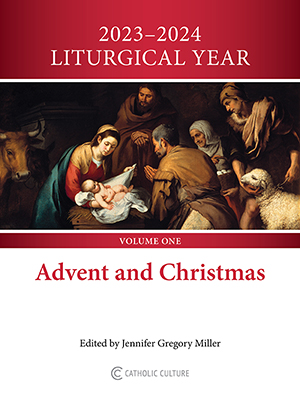Fathers of the Church
Letter CVIII. to Acacius the Presbyter
Description
Theodoret’s letters are a mine of information for the history of the fifth century, of the author’s life and of the history of dogma in general. This large correspondence is distinguished for its unpretentious learning, felicitous diction and perfect grace of style. (Quasten) Here Theodoret encourages his correspondent to continue fighting for traditional Christian doctrine and to praise him for his past efforts.
Provenance
Theodoret of Cyrus (c. 393-466), the wise and zealous bishop of Cyrus, a small town near Antioch, was the last great theologian of the school of Antioch. Although he first considered Alexandrian Christology dangerous, and refused to condemn Nestorius until the Council of Chalcedon, his commitment to the correct doctrine of the Incarnation should not be questioned. As late as the 14th century more than 500 of his letters were extant, of which we still have 232. Letters LXXIX-CXI date from 448 and 449, and chronicle the growing agitation in the Eastern Church during the Monophysite crisis, including the slanders that led to Theodoret’s illegitimate deposition at the “Robber-Council” of Ephesus in 449. Among these, most or all of XCII-CIX were sent with a group of Antiochene bishops who had gone to Constantinople to defend themselves and especially Theodoret against charges of heresy.
by Theodoret in c. 449 | translated by Blomfield Jackson
True indeed is the promise of David's Psalm, for through him the Spirit of truth gave this promise to them that believe, "Commit thy way unto the Lord, trust also to him; and he shall bring it to pass; and he shall bring forth thy righteousness as the light and thy judgment as the noonday." This we find too has come to pass in the case of your piety. For the great care you bestow upon them that are weeping for their orphanhood, and your struggles on behalf of the apostolic doctrines, are in every one's mouth, and so, as the prophets say, "Hidden things are made manifest." Since I too have beard of your piety's admirable exertions I write to salute you, most godly sir, and beseech you to increase your glory by adding to your labours, and to fight on behalf of the doctrine of the Gospels, that we may both keep the inheritance of our fathers unimpaired, and bring our Master His talent with good usury.
Taken from "The Early Church Fathers and Other Works" originally published by Wm. B. Eerdmans Pub. Co. in English in Edinburgh, Scotland, beginning in 1867. (NPNF II/III, Schaff and Wace). The digital version is by The Electronic Bible Society, P.O. Box 701356, Dallas, TX 75370, 214-407-WORD.
To Fathers of the Church home page







